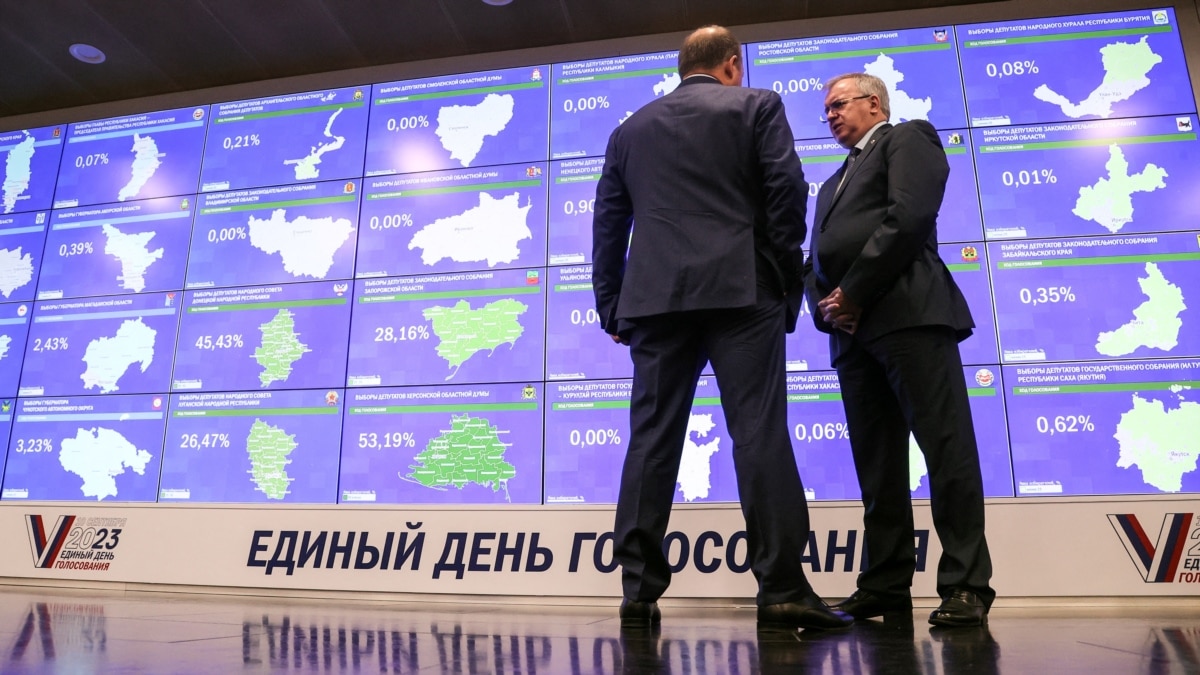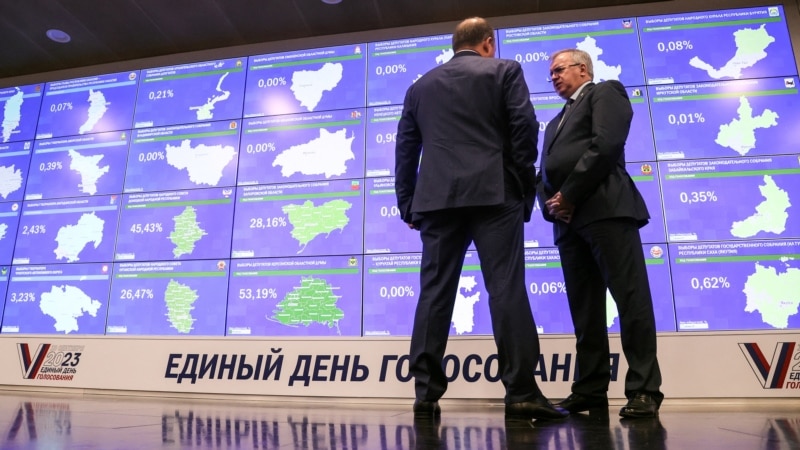Russia Fakes Elections and Turnout Numbers in Ukrainian War Zones

On September 8-10, Russia claimed to have held “elections” in five partly occupied regions of Ukraine. The illegal voting, which allegedly took place in the Donetsk, Luhansk, Zaporizhzhia and Kherson regions, was for candidates to “Russian regional parliaments.” A Russian State Duma deputy was supposedly elected in annexed Crimea.
Moscow announced that the turnout for these elections was high, with hundreds of thousands of people supposedly voting.
On September 10, Marina Zakharova, the chairwoman of the electoral commission that Russia set up in Ukraine’s occupied Kherson region, claimed:
“In total, 65.14% of the Kherson region’s voters took part in the voting.”
That is false.
First, such war zone “elections” are illegal under international law.
Citing the United Nations Charter and the General Assembly resolution ES-11/4, which deemed the Russian occupation of Ukraine illegal, a senior U.N official said on September 8 that Russia’s latest “so-called elections” had “no legal grounds” and undermined the peace process.
Apart from making unverifiable claims to have held the elections, Russia also claimed turnout numbers that exceed the total population of the occupied Ukrainian towns and cities.
Less than 63% of the Kherson region’s population lives in the area currently occupied by Russia, making it highly unlikely that 65.14% of the region’s voters cast ballots.
According to the Kherson region’s main department of statistics, the region’s permanent population was 1,000,166 as of January 1, 2022.
As of early September 2023, Ukraine fully controlled the Kherson region’s Berislavsky district, with a population of 94,940 people, as well as the city of Kherson, with a population of 275,529 — totaling 370,469 people, or 37% of the region’s population.
In addition, Ukraine controls about a third of the territory of the Kherson district, whose population, excluding Kherson city, is 170,325.
Thus, according to the most conservative estimate, more than 37% of the Kherson region’s residents live in areas controlled by Ukraine, while less than 63% live in territories controlled by Russia.
The BBC reported that the results and turnout of the Russian “elections” in the occupied Ukrainian territories were impossible to verify because there were no independent observers and voters voted at gunpoint:
“Photos depict voters dropping ballots into boxes seemingly under the watchful eyes of heavily-armed, balaclava-clad soldiers. Some photos showed polls being dropped into clear plastic ballot boxes, with the votes visible.”
Andriy Magera, a former member of Ukraine’s Central Election Commission, posted a video on Facebook showing a military man in a balaclava and a woman in civilian clothes walking down the street in one of the Kherson region’s occupied villages, knocking on doors and demanding that residents vote.
A resident of a Russian-occupied area of the Kherson region told the BBC’s Ukrainian Service, on condition of anonymity, that “local collaborators and Russian soldiers were walking around with machine guns and ballot boxes in their hands.”
Ukraine and the West have denounced Russia’s attempts to legitimize its occupation of Ukraine, including by faking elections.
U.S. Secretary of State Antony Blinken said on September 8 that Russia’s “so-called,” “sham” elections “demonstrate its blatant disregard for U.N. Charter principles like respect for state sovereignty and territorial integrity, which underpin global security and stability.”
The U.S. “will never recognize the Russian Federation’s claims to any of Ukraine’s sovereign territory,” Blinken said, warning any potential “international supporters” of Russian actions that they may be subjected to sanctions and visa restrictions.
G7 foreign ministers of the United States, Japan, Germany, the United Kingdom, France, Italy, Canada, and the High Representative of the European Union, called the elections a “sham” and “a further violation of the independence, sovereignty and territorial integrity of Ukraine and of the UN Charter.”
This article has been archived for your research. The original version from Polygraph.info can be found here.



